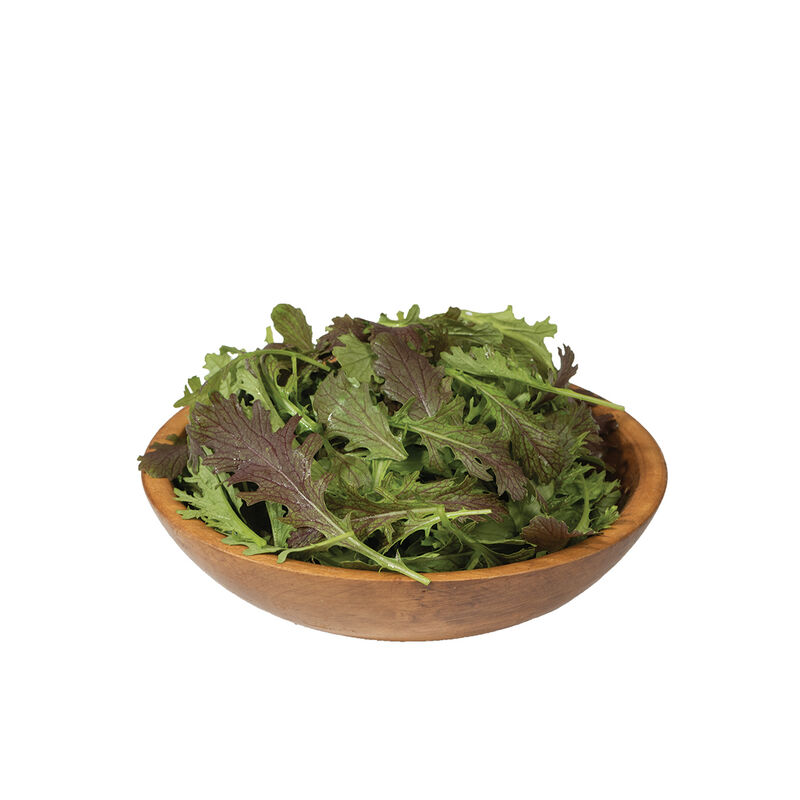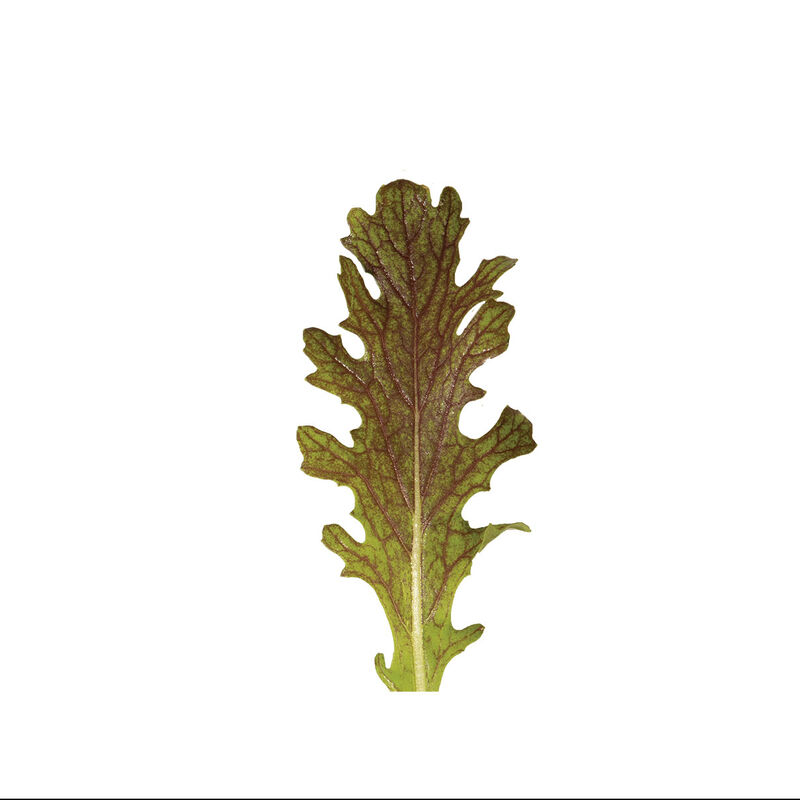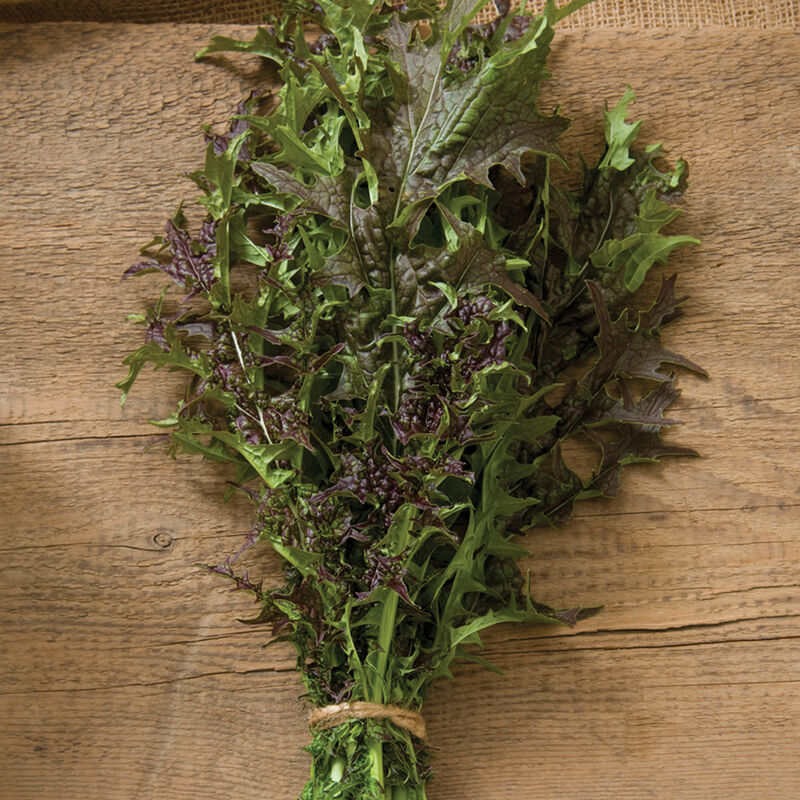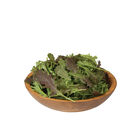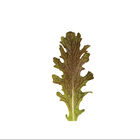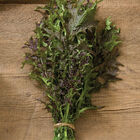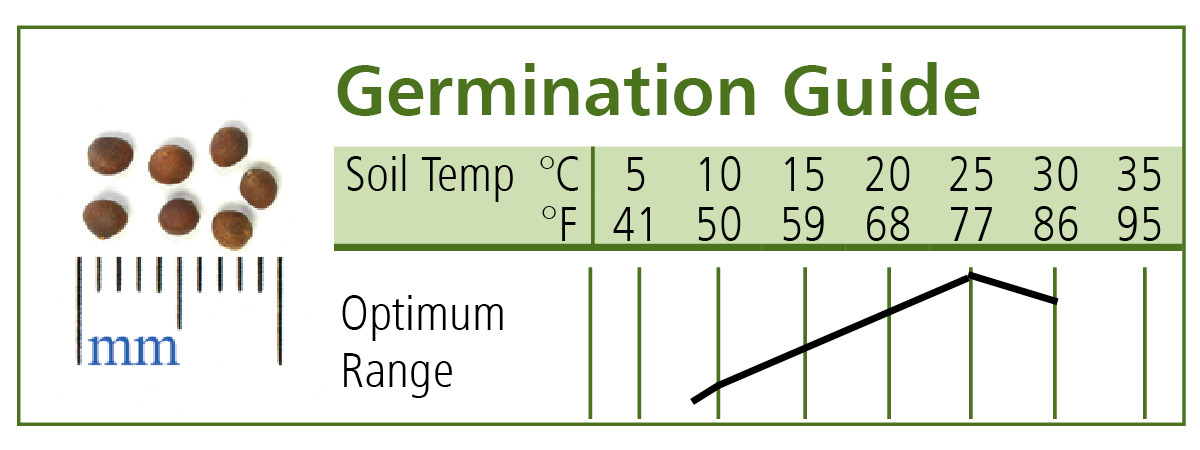Red Splendor Mustard Green Seed
Product ID:3051.113051
Red Splendor Mustard Green Seed
Product ID:3051.113051
Exclusive! Dark red and green, deeply lobed leaves.
Very slow-bolting plants hold their color in hot weather, making this variety a good choice for summer production. Hot, mustardy flavor. Plant at high density to keep from becoming oversized.Specs:
SCIENTIFIC NAME:
This growing information is for baby-leaf production of the following Brassicas, including baby mustard greens, mizuna, tatsoi, and komatsuna: Brassica carinata, B. juncea, B. napus ('Red Russian' and 'KX-1'), B. rapa, B. rapa var. chinensis ('Tokyo Bekana' and 'Rosie'), B. rapa var. japonica, B. rapa var. narinosa ('Tatsoi'), B. rapa var. perviridis ('Green Giant').CULTURE:
Brassicas prefer soil with a pH of 6–7.5 and can be grown all season in the field. Most varieties are hardy enough to grow in cool greenhouses and high tunnels during winter from late summer and early fall sowings. DAYS TO MATURITY: From emergence after direct seeding.DIRECT SEEDING:
Sow ¼" deep at 3–5 seeds/inch, in rows at least 2" apart from early spring into midsummer. Can be sown into late fall if overwintering in a high tunnel or other protected structure.RECOMMENDED JANG SEED ROLLER (baby leaf): Mustard, Mizuna, Pac Choi, Tatsoi: Y-24 or X-24; Chinese Cabbage, Kale, Komatsuna: X-24 or F-24. (Where multiple rollers are recommended, choosing a roller with a larger hole will increase the number of plants per inch. This creates longer petioles and somewhat slower-growing, narrower leaves for an extended baby leaf harvest. It will also wash out color, hasten bolting, and increase the need for water and fertility. Choosing what works best for your system may take some trialing and adjustment.)AVG. DIRECT SEEDING RATE: For Mizuna, Tatsoi, Komatsuna, and Pac Choi: 1 oz./210', 1 lb./3,300'. For Kale: 1,000 seeds/16', 1 oz/115', 1 lb./1,840'. For Mustard: 1 oz./260', 1 lb./4,160'.
SUCCESSION PLANTING:
For a continuous supply, sow about every 2 weeks until 2–3 weeks before the first frost.INSECT PESTS:
Control flea beetles by applying fabric row cover at time of sowing and/or applying insecticides such as azadirachtin or pyrethrin. Cabbage worms and loopers can be controlled with Bacillus thuringiensis (Bt). DISEASE: Prevent disease with crop rotation and sanitation.HARVEST:
Harvest with a knife when leaves reach desired size, about 3–6". Make sure to cut above the basal plate for cut-and-come-again harvests. Cut again when plants are at desired size, 5–14 days depending on variety and season.SIZED SEEDS: Kale seeds are sized except where noted. SEEDS/OZ.: Mustard: Avg. 16,200/oz.; Mizuna, Tatsoi, Komatsuna: Avg. 12,650/oz.; Pac Choi: Avg. 10,300/oz.; Kale: Avg. 7,750/oz.PACKET: 250 seeds, sows 4'. For Kale: 100 seeds, sows 1½'.Johnny's is committed to your success, every step of the way.
We want you, our customer, to be 100% satisfied with all of our seeds, tools, and supplies.
If anything you purchase from us proves unsatisfactory, we will either replace the item or refund the purchase price.


